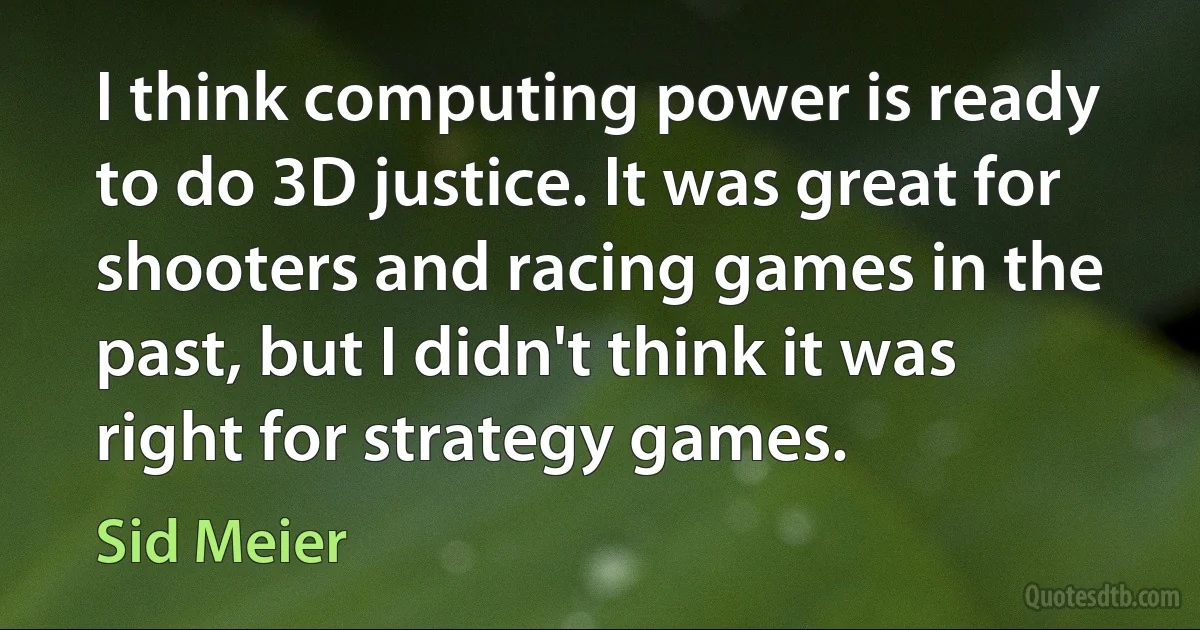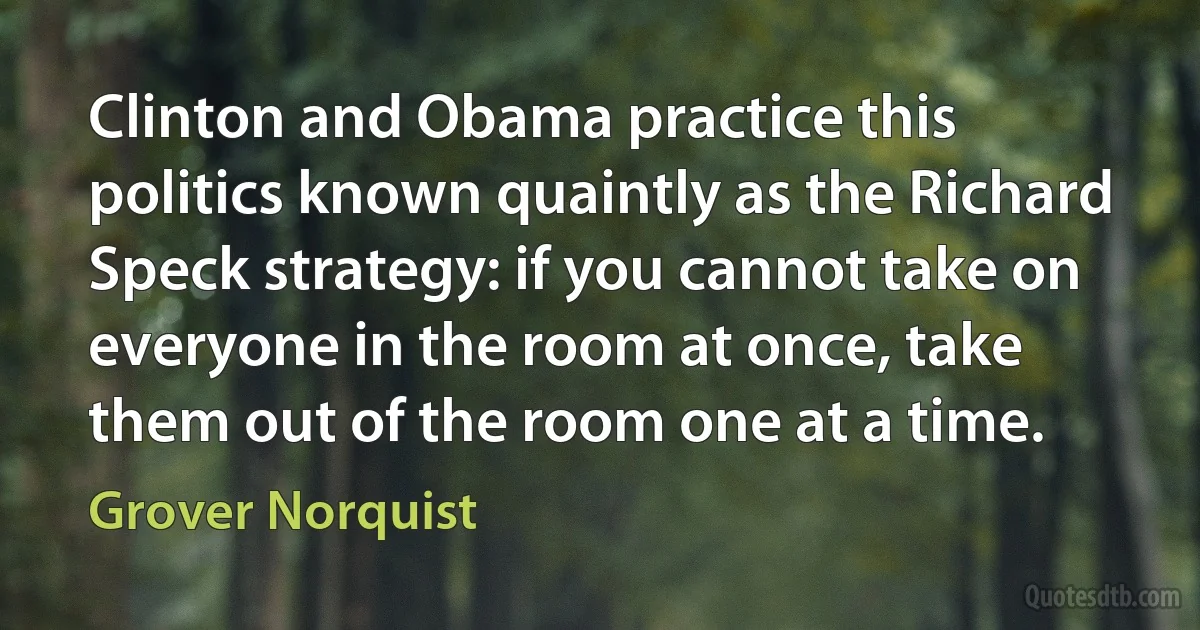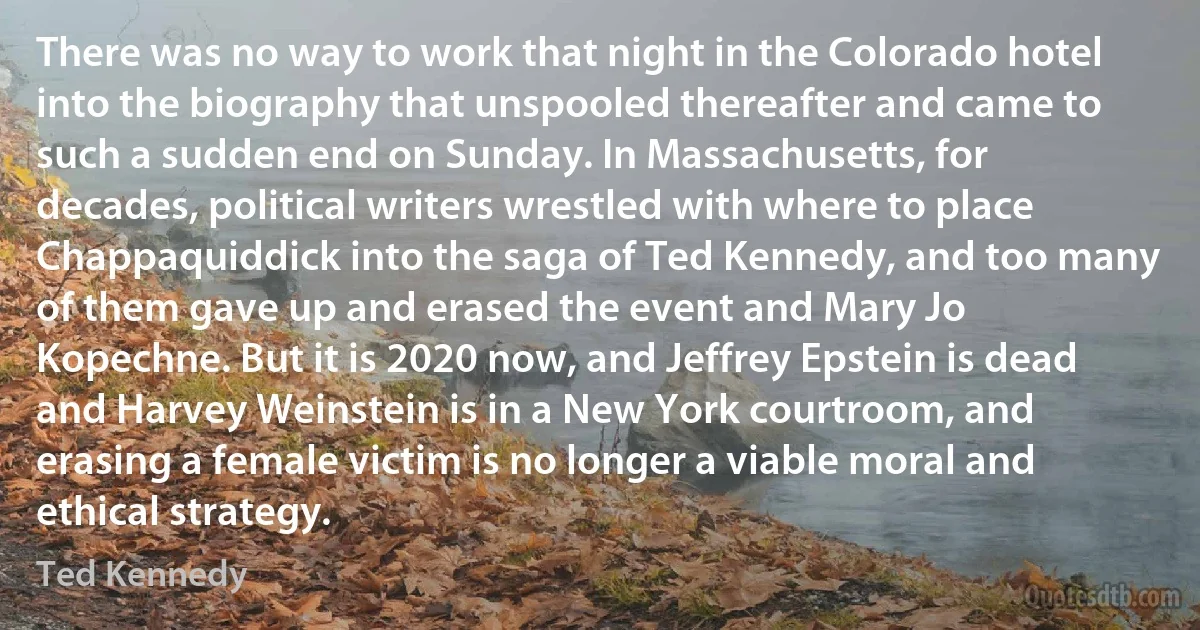Strategy Quotes - page 27
Leadership is about setting a direction. It's about creating a vision, empowering and inspiring people to want to achieve the vision, and enabling them to do so with energy and speed through an effective strategy. In its most basic sense, leadership is about mobilizing a group of people to jump into a better future.

John Kotter
Owing to the incapacity of the higher price-rate to appeal to the "acquisitive sense," it would appear altogether plausible to attempt to do so by utilizing the opposite strategy: by decreasing piece-rates, to force workers to produce more in order to maintain their accustomed earnings. Moreover, two simple observations seem to have held true in the past, as they do today: a lower wage and higher profit are directly related, and all that is paid out in higher wages must imply a corresponding reduction of profits.
Capitalism has been guided by this axiom repeatedly, and even from its beginning, and it has been an article of faith for centuries that lower wages are "productive."

Max Weber
I also want to point out that the President has a unique and really dishonest approach to those of us who have said for a long time that we have to have more involvement and predicted what would happen. Unfortunately, we have been wrong by saying, yes, the "popoffs"--as he called us in a speech from the Philippines--want to send hundreds of thousands of troops. That is a total falsehood. I will repeat again what we have been asking for for years, and that is another 5,000 or so Americans on the ground in Iraq and a multinational force led by the Sunni Arab countries with European participation--I would hope that people like the French would join in a--about 10,000 of 100,000-person force to go to Raqqa and take them out. As long as Raqqa exists, they will be able to export this evil throughout the world, including to the United States of America. There is no plan by this administration to retake Raqqa. There is no strategy, and that is, indeed, shameful.

John McCain
I welcome Senator McCain's important statement on President Reagan's legacy and the need to move toward a world free of nuclear weapons. In my speech in Prague, I outlined my agenda for keeping the American people safe from the dangers posed by nuclear weapons, and I am grateful to John McCain for his leadership on these critical issues. I have outlined an ambitious strategy for promoting arms control and preventing nuclear terrorism and proliferation, which is already bearing fruit. I look forward to working with Senator McCain and the entire Congress to ensure that we accomplish these goals together for the American people and the security of the entire planet.

John McCain
So I tried and failed. When I failed, I left a comprehensive anti-terror strategy and the best guy in the country, Dick Clarke, who got demoted. So you did Fox's bidding on this show. You did your nice little conservative hit job on me. ... And you've got that little smirk on your face and you think you're so clever. But I had responsibility for trying to protect this country. I tried and I failed to get bin Laden. I regret it. But I did try. And I did everything I thought I responsibly could.

Bill Clinton
With his flamboyant headgear, his sunglasses and corn cob pipe, he looked like an actor playing the role of a great general. He also had the sort of press an actor likes; he arranged that, in part, by keeping his subordinates as anonymous as possible. But the truth was that Douglas MacArthur, Supreme Commander of Allied Forces in the Southwest Pacific, was a great general. He had one of the most distinguished military careers on record (top of his class at West Point, a hero in the first war, Army Chief of Staff), and it is doubtful that anyone in any of the services knew more about the Pacific theater. Nonetheless, the war that would be waged to return him to the Philippines, as he had promised, would be a Navy war, and [three admirals] - Nimitz, King, and Halsey - would have every bit as much to do with the strategy and tactics of winning that war as he had.

Douglas MacArthur
Trying to eliminate Saddam, extending the ground war into an occupation of Iraq, would have violated our guideline about not changing objectives in midstream, engaging in "mission creep," and would have incurred incalculable human and political costs. Apprehending him was probably impossible. We had been unable to find Noriega in Panama, which we knew intimately. We would have been forced to occupy Baghdad and, in effect, rule Iraq. The coalition would instantly have collapsed, the Arabs deserting it in anger and other allies pulling out as well. Under those circumstances, there was no viable "exit strategy" we could see, violating another of our principles.

Saddam Hussein
The methodological strategy of using the concept of rationality as an 'intermediary' is particularly inappropriate in arriving at the proposition that actual behaviour must be self-interest maximizing. Indeed, it may not be quite as absurd to argue that people always actually do maximize their self-interest, as it is to argue that rationality must invariably demand maximization of self-interest. Universal selfishness as actuality may well be false, but universal selfishness as a requirement of rationality is patently absurd.

Amartya Sen
It is, of course, a matter of history that our military advisers, in face of this appeal from me, still decided to adhere to their view as to the feasibility of the Flanders offensive. Could I have gone behind these exalted Commanders and conducted independent investigations on the spot into the facts and conditions? ... Profound though my own apprehensions of failure were, I was a layman and in matters of military strategy did not possess the knowledge and training that would justify me in overriding soldiers of such standing and experience. Accordingly, the soldiers had their way. And it is one of the bitter ironies of war that I, who have been ruthlessly assailed in books, in the Press and in speeches for "interfering with the soldiers" should carry with me as my most painful regret the memory that on this issue I did not justify that charge.

David Lloyd George
According to Pompeo [U.S. Secretary of State], CCP general secretary Xi Jinping and the Communist Party of China (CCP) harbor a "decades-long desire for global hegemony.” This is ironic. Only one country – the US – has a defense strategy calling for it to be the "preeminent military power in the world,” with "favorable regional balances of power in the Indo-Pacific, Europe, the Middle East, and the Western Hemisphere.”
China's defense white paper, by contrast, states that "China will never follow the beaten track of big powers in seeking hegemony,” and that, "As economic globalization, the information society, and cultural diversification develop in an increasingly multi-polar world, peace, development, and win-win cooperation remain the irreversible trends of the times.”
US military spending totaled $732 billion in 2019, nearly three times the $261 billion China spent. The US.. has around 800 overseas military bases, while China has just one (a small naval base in Djibouti).

Xi Jinping
Today we hear much discussion about "overkill." The people who are talking "overkill" knowingly or unknowingly support the adoption of a minimum-deterrence strategy. In advocating that strategy, they are addressing the wrong problem. Instead of belaboring our ability to destroy the population of an aggressor nation, they should consider what we require to save American lives and property by preventing war, or by gaining a decision as quickly as possible if war occurs. That is the proper and traditional task of the United States armed forces. The counterforce strategy which we are pursuing and analyzing today provides our best prospect for success in that task.

Curtis LeMay
Chance as a theme and as method. A method of allowing something objective to come into being; a theme for creating a simile (picture) of our survival strategy:
(1) The living method, which not only processes conditions, qualities and events as they chance to happen, but exists solely as that non-static 'process', and in no other way.
(2) Ideological: denial of the planning, the opinion and the world-view whereby social projects, and subsequently 'big pictures', are created. So what I have often seen as a deficiency on my part – the fact that I've never been in a position to 'form a picture' of something – is not incapacity at all but an instinctive effort to get at a more modern truth: one that we are already living out in our lives (life is not what is said but the saying of it, not the picture but the picturing).

Gerhard Richter



